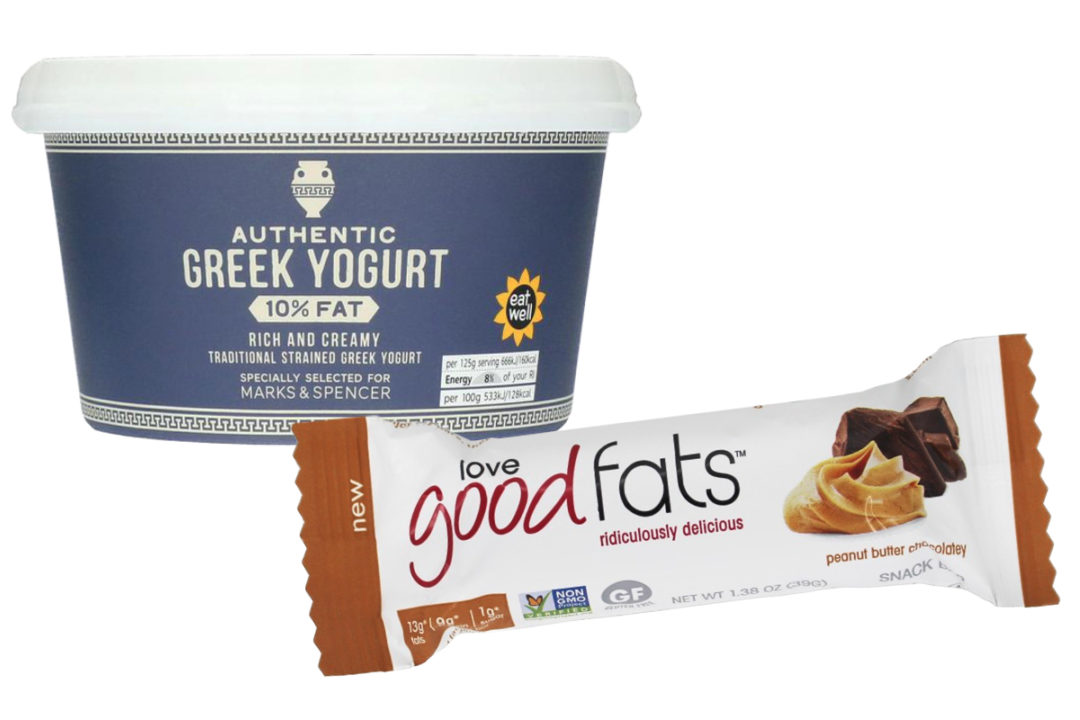It seems that younger consumers are losing their fear of fat – according to the latest studies. One of those; a five-year study from New Nutrition Business (NNB) quoted that the younger generation are now more open to the idea that fat isnt all that bad after all with 34% of consumers aged 35 to 44 and 33% of those aged 25 to 34 stating that they would now be willing to eat more fat.

So why such a sudden change of heart? Only 16% of Americans are now putting weight gain down to the fatty nutrients found in their food, where as 48% are blaming carbs and sugars. Is it that fat was never truly the enemy after all?
In a survey by Label Insight 22% of U.S. consumers want to restrict their sugar intake. Sarah Schmansky, vice president of Nielsen’s fresh and health wellness division told Food Dive that one in two consumers plan to do this by purchasing “no sugar added” products. She goes on to explain that there has recently been a consumption realization that fat isnt all that bad and actually helps optimize foods taste, texture and moisture content. With consumption habits changing, the industry is facing a shift: a higher demand for fats and an increased shun of carbs and sugars.
Julian Mellentin, director at New Nutrition Business, said that; “When people discover fat, there’s such a taste difference. Fat is the product developers’ friend, improving texture, mouthfeel, structure and moisture content. In all categories, as time passes there will be less reason to produce products that have low levels of fat.”
This isnt the only consumption change the food industry is experiencing. Consumers are also starting to chase more clean-label and functional foods which offer added health benefits and immunity boosts (we can thank for pandemic for that one!).
Along with the swift move away from sugars and carbs, consumers are now seeking products with more natural ingredients and compounds they actually recognize. With these new trends taking place, the fats space has seen premium oils and butters especially benefit from fad diets like keto and paleo, which both require higher intakes of the substance.
Why? Butters all natural make-up has been propelling it to victory in the last few years. The NNB study found that covid has helped push record sales and an increase in the money spent on butter propelling to 360% this year. One of Americas biggest agribusinesses Land O’Lakes said it expected its butter sales to peak more than 20% this year due to the coronavirus according to Bloomberg, due to increased butter usage at home for baking as well as consumers making a conscious effort to avoid more processed alternatives like margarine and creams.
This doesnt mean that fat is good, however. A 2018 study found that high-fat ketogenic diets could increase the risk of developing Type 2 diabetes and incurring liver problems. Consumers following a high fat diet like keto should keep a close eye on the research and studies connecting them to potential health issues.
Who is really benefiting from this consumer transition? In NNB´s report it was noted that it was challenger brands and retail-own labels who were seeing increased sales amid this specific change in consumer habits, which has helped open doors for increased product development and innovation opportunities. Supermarket companies in the UK such as Tesco and Marks and Spencers both have their own line of 10% fat own-label Greek Yoghurt, of which the latter carries its “Eat well label” designed to help steer consumers towards healthy eating.

In the US? Dairy company Yoplait is also following the latest trend, introducing Americans to crème fraiche, a French traditional high-fat dairy dessert typically containing around 30–45% milk fat. The startup is also launching this new product to align with the growing consumer interest in plant-based foods offering a vegan, dairy-free option.
Canada´s The Good Fat Co. Ltd. also known as Love Good Fats offers 12 good fat and low carb products like its dark chocolate-coated plant-based truffle bars, all containing more than 12 grams of fat per serving. The company, which is available across more than 20,000 stores including Walmart and Costco, has secured $10.7 million in investment to accelerate growth, so where will we see them next we wonder..
What next? This re-birth of fat is likely to continue to evolve and is now intertwining with a number of other trends like zero carb and sugar products, protein-packed lifestyles and the search for new products with never seen before health benefits. With younger generations taking a new stance on the benefits of fat revealing that tastier products can be enjoyed without the guilt current trends indicate it is unlikely for this to change any time soon, and high-fat products from more natural sources will continue to reign supreme with increasingly more health-concerned consumers.